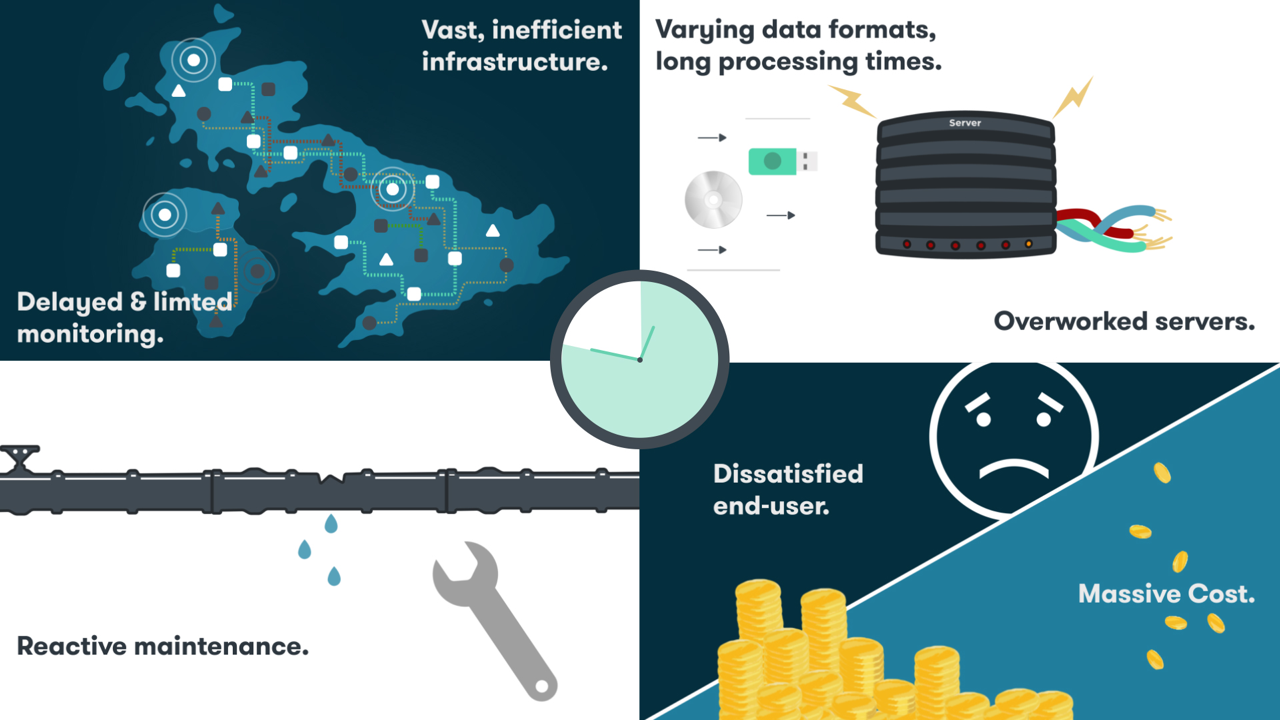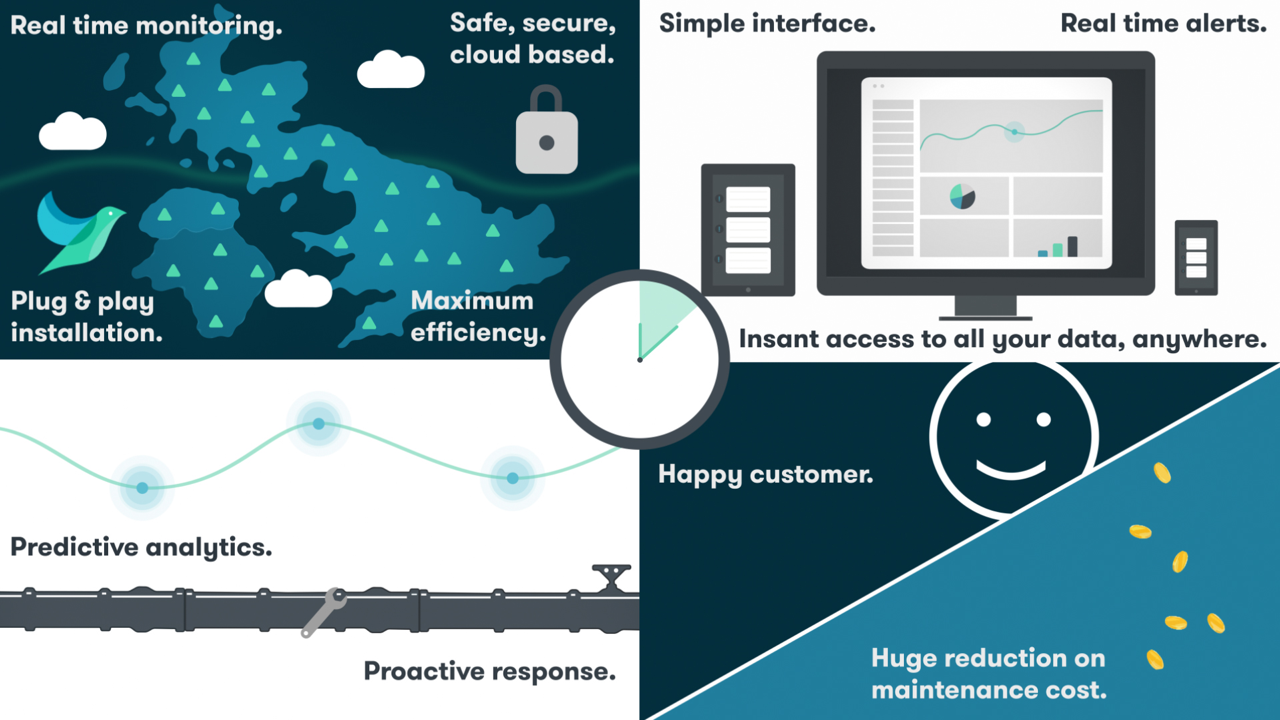The growing population, paired with urbanisation, creates a constant strain on utility infrastructures.
Modern society is built on basic utilities and providers are now looking for solutions to make their infrastructures smart, not only to meet the growing demand, but also to appease the hyper-connected and informed customer.
To change and innovate, we need to ask:
Do we replace or do we upgrade?
We know replacing is not an option, it’s far too expensive and disruptive. Upgrade it is.
There are various benefits to making the systems smart, the main being time spent identifying issues and the cost of responsive repairs.
The way utility systems currently work

Incumbent systems work on either a reactive maintenance model where issues within the utility networks are tended to, as and when they happen, or a planned maintenance schedule which can be costly and is not always efficient.
System downfalls are due to the vast area that networks cover and the delays in obtaining and making sense of sensor data that is received in different formats, from different systems to overworked, onsite servers.
Innovation through smart hardware and software

To move to a proactive model to save time, and ultimately money, as well as ensuring a higher level of customer satisfaction, utility companies need to become smart.
By using cellular, GPS, or emerging technology such as LoRaWAN, we can send sensor data to the cloud, so utility companies can gain real-time insight into their networks and overtime, predict system failures.
Old meets new
The incumbent tech deployed in most utility companies operates via simple logic, yet, try to have them talk to eachother and you’ll soon realise these are all talking completely different languages, and no amount of raised voices or flailing hand gestures will help align these protocols.
Hark CTO Andrew Hathaway spoke recently about overcoming connectivity issues with legacy systems and the issues facing utility providers could be remedied using these solutions.
Data is King
By providing the ability to capture and convert raw data into usable information, the utility sector will improve efficiency, enhance customer value and manage overall risk.
The utility sector first needs to understand what data assets it has, what the business value will be by capturing that data, and then how to execute an IoT strategy.
Once connected, data utilisation will provide visibility of assets, generate actionable insights, and improve operations.
Capitalising on big data will help to discover new revenue opportunities, and not only will the business performance improve, there will be a system in place to measure it.
To learn more about making your existing system smart, get in touch with us today.


